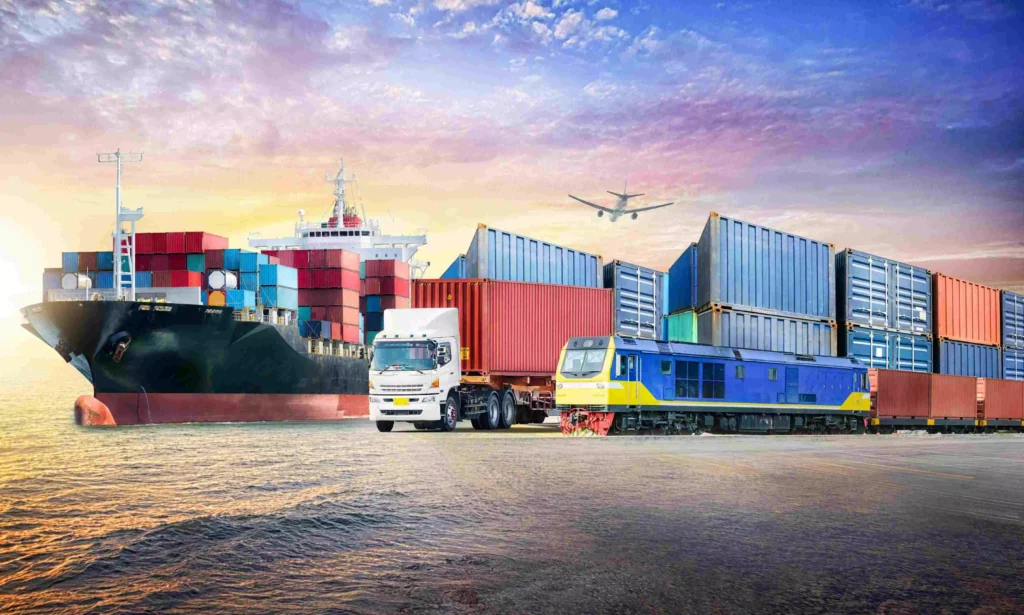Container shipping has been a game-changer in logistics and global trade. It’s like the superhero of shipping, making things faster, cheaper, and more efficient. In this article, we’ll take you on a journey through the history of container shipping and show you how it transformed how goods move around the world.
The Humble Beginnings
Our story starts in the 1950s when a brilliant idea began to take shape. A trucking entrepreneur named Malcolm McLean thought, “Why not put all these different things we’re shipping into big, standard-sized boxes?” And just like that, the first shipping container was born. McLean’s vision was simple but revolutionary: he wanted to make loading and unloading cargo from ships faster and easier.

The Birth of the Container Ship
To make this idea work, container ships had to be designed. These ships had special slots or “cells” to hold the containers securely. In 1956, the first container ship, named the Ideal X, set sail from New Jersey to Houston, Texas. It was a small start, but it changed everything.
The Big Breakthrough
Container shipping started to catch on, and more and more companies saw the benefits. Before containers, workers had to load and unload cargo piece by piece, which was slow and expensive. With containers, a whole truckload of goods could be loaded onto a ship in one go. This saved time and money.
Standard Sizes
One of the genius things about containers is that they come in standard sizes. Most containers are either 20 feet or 40 feet long. This standardization means that they can easily fit on trucks, trains, and ships without a lot of fuss. It’s like playing with building blocks where everything fits together perfectly.
The Global Impact
As container shipping grew, it changed the world. Ports became bigger and more efficient to handle all the containers. Shipping became cheaper, when more products could be made in one place and sold all over the world. This gave a boost to industries and economies everywhere.
Globalization
Container shipping made the world smaller. It allowed businesses to trade with countries far away as easily as with their neighbors. This process is called globalization, and it’s what makes it possible for you to enjoy fruits from distant lands, wear clothes made in other countries, and use gadgets with parts from all over the globe.
Environmental Impact
While container shipping has brought many benefits, it’s not without its challenges. The huge ships and the need for fast transportation can have environmental impacts. However, many in the industry are working on ways to reduce the environmental footprint of container shipping through cleaner fuels and more efficient operations.
Conclusion: Container shipping is the unsung hero of global trade and logistics. It started with a simple idea and turned into a worldwide phenomenon. Thanks to containers, goods can travel faster, cheaper, and more efficiently than ever before. The history of container shipping reminds us that sometimes the simplest ideas can have the most profound impact on the world. So, the next time you see a massive container ship at a port, remember the incredible history behind it and how it shaped our modern world.
